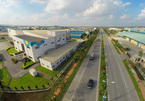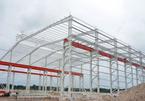 |
|
Industrial property was hit far less than other segments by COVID-19
|
Real Capital Analytics data show Asia-Pacific office transaction volumes fell by 59 per cent year to date (June, 2020) compared with the same period in 2019. Retail dropped by 68 per cent by the same metric. However, industrial and logistics transactions fell by only 24 per cent, suggesting the segment has proved more resilient in the face of the COVID-19 crisis.
According to Simon Smith, Savills Asia-Pacific head of Research and Consultancy: “Industrial and logistics properties, especially warehousing, have been at the top of many investor lists for a while now. The sector taps into megatrends such as the growth of online retail and almost every market in the region is undersupplied with modern logistics space.”
The segment continues to grow in appeal to global investors as a stable and secure asset class. Industrial and logistics property have been resilient across most of Asia-Pacific real estate markets, especially in Vietnam.
Vietnam – supply urgency
According to Focus Economics, Vietnam’s index of industrial production (IIP) in June 2020 was up 7 per cent on-year, largely driven by manufacturing and electricity production. Manufacturing and industrial output is estimated to grow 2.71 per cent overall in 2020, with 9.2 per cent growth forecast in 2021.
Manufacturing PMI was 51.1 points in June 2020, up from 42.7 points in May, marking the first growth above the 50-point threshold since January. This rebound is attributed to a solid increase in new orders, increased overall purchasing activity, while pre-production inventories were at their highest since November 2018.
In June 2020, Vietnam had 336 IPs over a total of approximately 97,800 hectares. Of these, 261 IPs are operational while 75 are under site clearance or construction. Operating industrial park average occupancy is now 76 per cent nationwide.
John Campbell, Savills Vietnam manager of Industrial Services, emphasised: “Demand continuing to outpace supply underscores the need for more segment supply in key industrial provinces. Occupancy rates in key hubs such as Binh Duong, Dong Nai, Long An in the south and Bac Ninh, Hung Yen, and Haiphong in the north, have all risen significantly since 2018.”
“Most lease transactions in the first half of 2020 were derived from discussions which started last year, while many others were confirmed from companies in Vietnam looking to expand production facilities. The travel restrictions have limited "market entry" enquiries, postponed site inspections from key international investors, in turn, reducing executed lease volumes with local developers,” he said.
While there are no guarantees for next year, Vietnam’s Industrial Sector reliance on continued supply chain migration out of China is increasingly apparent. Many landlords are anticipating a great year once travel restrictions are lifted. VIR
Nguyen Huong

Vietnam emerges as popular industrial property destination: CBRE
Vietnam has emerged as a popular destination for industrial property projects as increased labour costs, trade disputes and COVID-19 prompt global manufacturers to vary their supply chains throughout Asia, according to CBRE.

Complicated administrative procedures hinder development of industrial property in VN
Problems in land access and administrative procedures continue to exist, making it difficult for industrial real estate to develop over the long term, experts say.